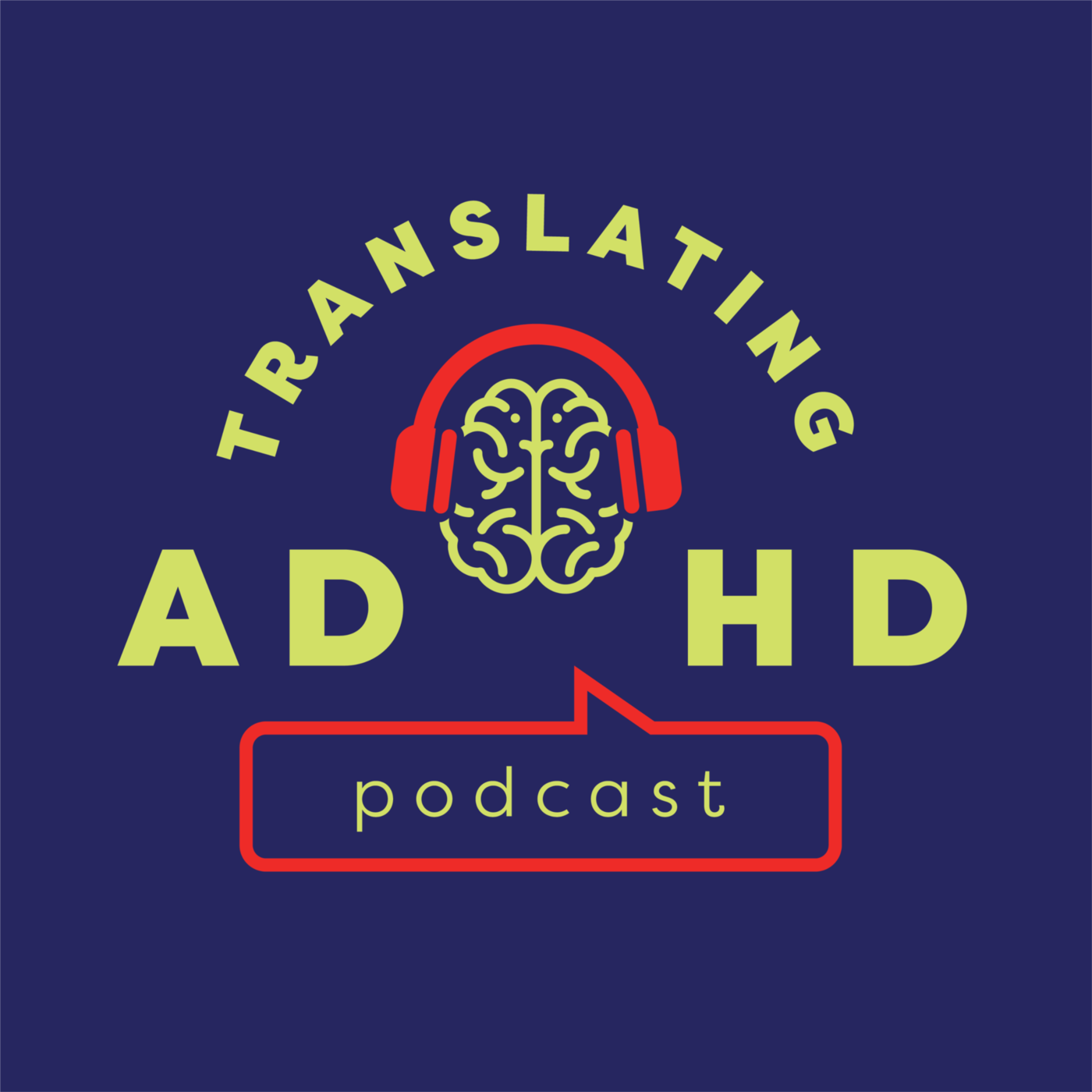
1.4M
Downloads
268
Episodes
We believe that success with ADHD is possible... with a little translation. Hosts Asher Collins and Dusty Chipura, both ADHD coaches who have plenty of insight to share navigating their own ADHD experiences, discuss how to live more authentically as an adult with ADHD and how to create real, sustained change to achieve greater success. If you are an adult with ADHD who wants more out of their business, career, and life, this is the podcast for you!
Episodes
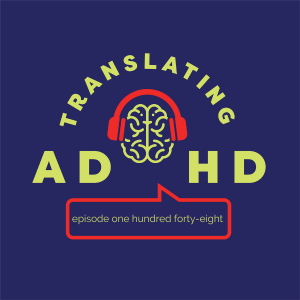
Monday Nov 21, 2022
Identifying Unique Needs for Your Unique ADHD Lived Experience
Monday Nov 21, 2022
Monday Nov 21, 2022
This week we turn our attention to the role of needs with respect to our own unique lived experience. Needs often are overlooked when it comes to ADHD primarily because of the very nature of needs. They operate often quietly in the background, and when they do make their presence known they show up as stressors. Needs are those things that make functioning sustainable. When needs go unattended they turn into stressors.
Those of us with ADHD use stressors to get things done, and we often walk a fine line between stimulation and stress. Cam brings his Hierarchy of ADHD Needs model to illustrate what they are and how needs depend on one’s own unique lived experience. Based on Maslow’s work, the hosts discuss how the model is more of a prompt than something to be taken literally.
Ash and Cam use multiple examples to discuss how needs intertwine with values and how recognizing and honoring needs is at the root of living authentically. Cam shares a client story of how the client can only generate hope when he addresses three specific needs. And with ADHD, the dilemma is remembering our own recipe of specific needs.
Episode links + resources:
Cam Gott’s Hierarchy of ADHD Needs
The model and specific ADHD distinctions:
Physiological ADHD Needs - brain awareness leads to better brain management
Safety ADHD Needs - identifying relief from daily stressors
Belongingness and Love ADHD Needs - positive environments that honor your authentic self
Esteem ADHD Needs - the need for self compassion and creative action and completion
Self-Actualization ADHD Needs - creative expression and connecting to something bigger than yourself.
For more of the Translating ADHD podcast:
- Episode Transcripts: visit TranslatingADHD.com and click on the episode
- Follow us on Twitter: @TranslatingADHD
- Visit the Website: TranslatingADHD.com
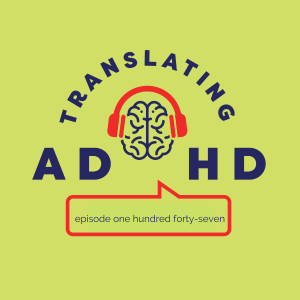
Monday Nov 14, 2022
Introducing Asher: Shelly Comes Out as Trans
Monday Nov 14, 2022
Monday Nov 14, 2022
Today Shelly shares very personal news. Shelly, living as a woman for 38 years, has come out as a transgender man. Meet Asher, listeners. Asher shares with Cam his journey to a more authentic life that fits. He discusses when one’s context changes almost overnight, sharing the dysphoria he felt living as a woman and reaching a pivotal galaxy-brain moment when disparate thoughts and feelings gelled into a new truth. Coincidentally, this is Transgender Awareness Week. Asher reveals the challenges but also the moments of clarity, support from friends and resolve as he moves through the process of stepping into becoming a man.
The hosts assure listeners that nothing changes about the Translating ADHD Podcast. We will continue to deliver the same nuanced coaching perspectives and insights on the ADHD lived experience as we always have.
Episode links + resources:
For more of the Translating ADHD podcast:
- Episode Transcripts: visit TranslatingADHD.com and click on the episode
- Follow us on Twitter: @TranslatingADHD
- Visit the Website: TranslatingADHD.com
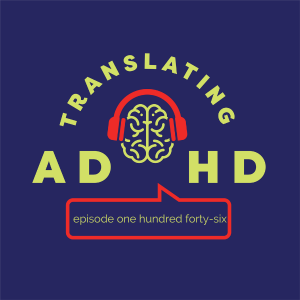
Monday Nov 07, 2022
ADHD, Race and Culture: The Black Man Lived Experience
Monday Nov 07, 2022
Monday Nov 07, 2022
We continue our theme on race and ADHD as we welcome men's mental health advocate John Hazelwood to Translating ADHD. A nuclear engineer by day, in his spare time John advocates for men’s mental health and runs a 13,000 member support group for men with fellow advocate and ADHD coach Marc Almodovar (a PoC Voices guest in episode 136). In this episode, John speaks about his own challenges growing up as a Black man with ADHD in a community wary of mental health issues. John shares how he was rejected inside and outside his community and how he turned his own experience of relentless bullying and struggle into his own mission - to address the need for representation, advocacy, education and support for men of color.
John relays the specific challenges facing Black men who struggle with ADHD - the lack of representation in mental health services, the stigma of sharing emotions and the weight of generational oppression. John shares how the education system punishes rather than supports young Black men. Through the conversation, though, John conveys a message of resilience and hope and that real change is possible. The goal to ‘sit and listen with an open mind’ is realistic and attainable.
Episode links + resources:
For more of the Translating ADHD podcast:
- Episode Transcripts: visit TranslatingADHD.com and click on the episode
- Follow us on Twitter: @TranslatingADHD
- Visit the Website: TranslatingADHD.com
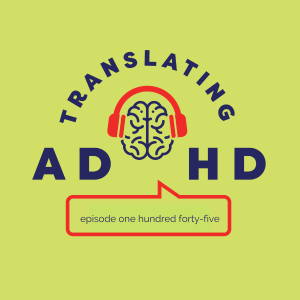
Monday Oct 31, 2022
ADHD, Race and Culture: The Black Woman Lived Experience
Monday Oct 31, 2022
Monday Oct 31, 2022
We continue our theme on race and ADHD as we welcome fellow ADHD coach and psychotherapist Inger Shaye Colzie back to Translating ADHD. Inger Shaye helped Shelly and Cam kick off the PoC Voices series back in the summer of 2020. Inger Shaye shares how a lack of representation at the 2019 Annual ADHD Conference inspired her to become a coach herself and also inspired her to start The ADHD Black Professionals Alliance - an organization committed to addressing ADHD and mental health issues in the Black community.
Inger Shaye also discusses how years ago her advocating for her ADHD son in a school system, a system wanting to label her child as a discipline problem, revealed the disparities in support services available to communities of color. She shares the unique burdens placed upon black women - the expectation to care for everyone in the community, often putting their own needs at the bottom of their list. She shares how executive function challenges, gender and race create a triple challenge to fostering real and positive change for her clients. Finally, she shares examples of her own clients, professional black women, and how coaching can address their unique challenges in the workplace and the homefront.
Episode links + resources:
Links to the resources Inger Shaye shares on the episode:
https://ingershaye.com/
https://ingershaye.com/tiabac/
Inger Shaye’s Facebook group for professional Black women: https://www.facebook.com/groups/blackwomenwithadhd
For more of the Translating ADHD podcast:
- Episode Transcripts: visit TranslatingADHD.com and click on the episode
- Follow us on Twitter: @TranslatingADHD
- Visit the Website: TranslatingADHD.com
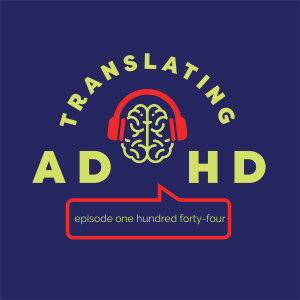
Monday Oct 24, 2022
ADHD, Race and Culture: The South Asian Lived Experience
Monday Oct 24, 2022
Monday Oct 24, 2022
The show pivots this week to explore race and culture and how they both inform one’s own lived experience. Shelly and Cam welcome fellow ADHD coach and diversity, equity and inclusion (DEI) advocate Sudhita Kasturi to the show. Similar to the show’s PoC Voices series, the hosts delve into the South Asian-ADHD experience with Sudhita as their guide.
Sudhita shares her own story of growing up in India with undiagnosed ADHD - the challenges she faced and the surprising sources of support and understanding. The conversation moves from Sudhita’s own story and eventual ADHD diagnosis to supporting her own children and finally to a discussion about the broader South Asian ADHD lived experience. Sudhita relays how her community is often viewed as a ‘model minority’ and the challenges those with ADHD are presented with. She also addresses the challenges of being a woman of color living in the United States.
Eventually the discussion moves to resources and resilience as Sudhita discusses next steps for the South Asian ADHD population. Fast moving, informative and entertaining from start to finish, all listeners will enjoy this conversation into ‘your context matters’.
Episode links + resources:
The links to the resources Sudhita shares in this episode:
- ADDA Virtual South Asian Peer Support Group. https://add.org/south-asians-adhd-peer-support-group/
- Sudhita’s website.https://www.leverageyouradhd.com/
- Sudhita’s email sudhita@leverageyouradhd.com
For more of the Translating ADHD podcast:
- Episode Transcripts: visit TranslatingADHD.com and click on the episode
- Follow us on Twitter: @TranslatingADHD
- Visit the Website: TranslatingADHD.com
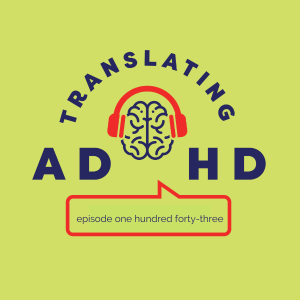
Monday Oct 17, 2022
ADHD and Your Lived Experience: Modality Sensitivities
Monday Oct 17, 2022
Monday Oct 17, 2022
Have you ever noticed being sensitive to too much noise or visual stimuli? Last week the hosts shared the concept of processing modalities as both strengths and challenges. This week they continue to look at modalities but introduce the concept of a sensitivity scale in addition to the strength scale. Modalities are the modes in which we prefer to process information and build knowledge.
For years organizer coach Denslow Brown observed that her clients demonstrated modal preferences when it came to developing and sustaining organizing systems. From this experience she developed her Processing Modalities workbook. Denslow ingeniously measured strengths and sensitivities on two separate and independent scales.
Cam and Shelly share multiple examples from their own clients to their own experiences to illustrate this sensitivity aspect - an aspect that ADHD people can be extra vulnerable to. Shelly distinguishes hyposensitivity from hypersensitivity when she shares the story of two organizing clients with a very different experience with physical stuff. Listeners will approach how sensitivities to modalities shape our lived experience.
Episode links + resources:
Processing Modalities - Denslow Brown MCC
https://coachapproach.square.site/product/processing-modalities-guide-with-shipping-/1
Translating ADHD and the hosts do not benefit financially from sharing third party links.
For more of the Translating ADHD podcast:
- Episode Transcripts: visit TranslatingADHD.com and click on the episode
- Follow us on Twitter: @TranslatingADHD
- Visit the Website: TranslatingADHD.com
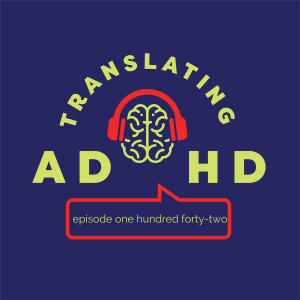
Monday Oct 10, 2022
ADHD and Your Lived Experience: Processing Modalities
Monday Oct 10, 2022
Monday Oct 10, 2022
Shelly and Cam continue to explore the ‘your context matters’ theme by looking at how modalities can inform an individual’s lived experience. Processing modalities, sometimes referred to as learning styles, are preferences we exhibit, often associated with physical senses like visual, auditory and verbal or additional areas like intuition and emotion. Much has been written about modalities including Howard Gardner’s Theory of Multiple Intelligences. Recently, advances in brain imaging have called into question many of the claims of these ideas, but it is still thought that people have preferences in how they build knowledge and process information.
The hosts have witnessed countless examples where clients demonstrate a preference for processing information, be it verbal processing or through some kinesthetic process (movement). Shelly and Cam introduce listeners to processing modalities through a client example regarding time management and how we can miss a preference strength area because of the ease of access. The hosts invite listeners to be curious about modalities at work.
Episode links + resources:
There are a number of modality resources available. For coaches and organizers we recommend a workbook by organizer coach Denslow Brown MCC, Processing Modalities:
https://coachapproach.square.site/product/processing-modalities-guide-with-shipping-/1
For the general public we suggest the free Kairos Cognition Survey:
https://www.kairoscognition.com/
Translating ADHD and the hosts do not benefit financially from sharing these links.
For more of the Translating ADHD podcast:
- Episode Transcripts: visit TranslatingADHD.com and click on the episode
- Follow us on Twitter: @TranslatingADHD
- Visit the Website: TranslatingADHD.com
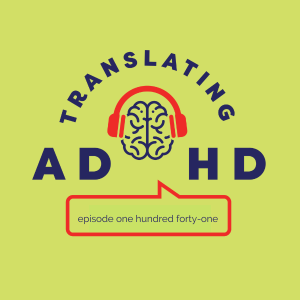
Monday Oct 03, 2022
Mulligan
Monday Oct 03, 2022
Monday Oct 03, 2022
Hi, everyone! We had some important stuff come up, and in the name of self-care we chose to take a mulligan. We look forward to returning October 10.
Episode links + resources:
For more of the Translating ADHD podcast:
- Episode Transcripts: visit TranslatingADHD.com and click on the episode
- Follow us on Twitter: @TranslatingADHD
- Visit the Website: TranslatingADHD.com
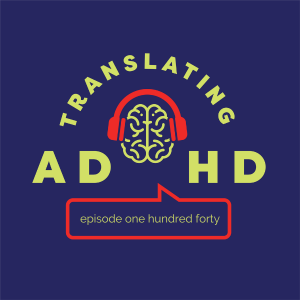
Monday Sep 26, 2022
ADHD and Your Lived Experience: Personal Narrative
Monday Sep 26, 2022
Monday Sep 26, 2022
Shelly and Cam continue to explore the lived experience theme for the new season with a deep dive into personal narratives. Our personal narrative is the narrative we tell ourselves to explain a situation or rationalize a behavior - ours or someone else’s. ADHD can make it really hard to distinguish our inner dialogue from our experiences in the world. The brain works hard to ‘tell a story’ to make sense of our experiences. Sometimes it gets it right, but often it omits or adds pieces to make the information more palatable, to fit a certain story.
Shelly and Cam share numerous client examples of how one’s own lived experience or context informs their narrative. They go on to share how coaching and therapy can help with seeing these statements for what they are - a perspective - and if this thinking is serving the client and who they are and what they are trying to achieve.
Episode links + resources:
For more of the Translating ADHD podcast:
- Episode Transcripts: visit TranslatingADHD.com and click on the episode
- Follow us on Twitter: @TranslatingADHD
- Visit the Website: TranslatingADHD.com
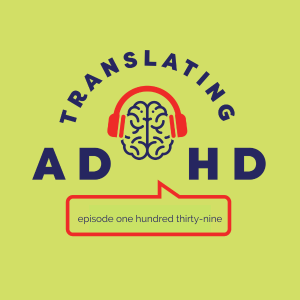
Monday Sep 19, 2022
Is ADHD a Superpower?
Monday Sep 19, 2022
Monday Sep 19, 2022
Cam and Shelly kick off the third season of the Translating ADHD podcast entertaining an often-asked question in ADHD circles - Is ADHD a Superpower?
It turns out that one’s own experience or context informs how people will answer this question. Many are emphatic one way or the other - that it is totally a superpower! or that it is not at all a superpower! Shelly and Cam, in usual form, explore the nuanced middle ground and discuss superpowers in the form of strengths and how ADHD can get in the way of distinguishing, owning and stepping into one’s strengths. Shelly and Cam point to research that proves that one’s context such as race, gender and marital and economic status influence one’s outlook on their ADHD (links below). The hosts share a number of client examples and examples from their own lives to look at framing one’s ADHD experience by exploring concepts like personal preferences and identities. Most significant, the hosts introduce the theme for the start of Season 3 - Your own context matters.
Episode links + resources:
Flourishing Despite ADHD Article
Positive Aspects of ADHD Article
For more of the Translating ADHD podcast:
- Episode Transcripts: visit TranslatingADHD.com and click on the episode
- Follow us on Twitter: @TranslatingADHD
- Visit the Website: TranslatingADHD.com
